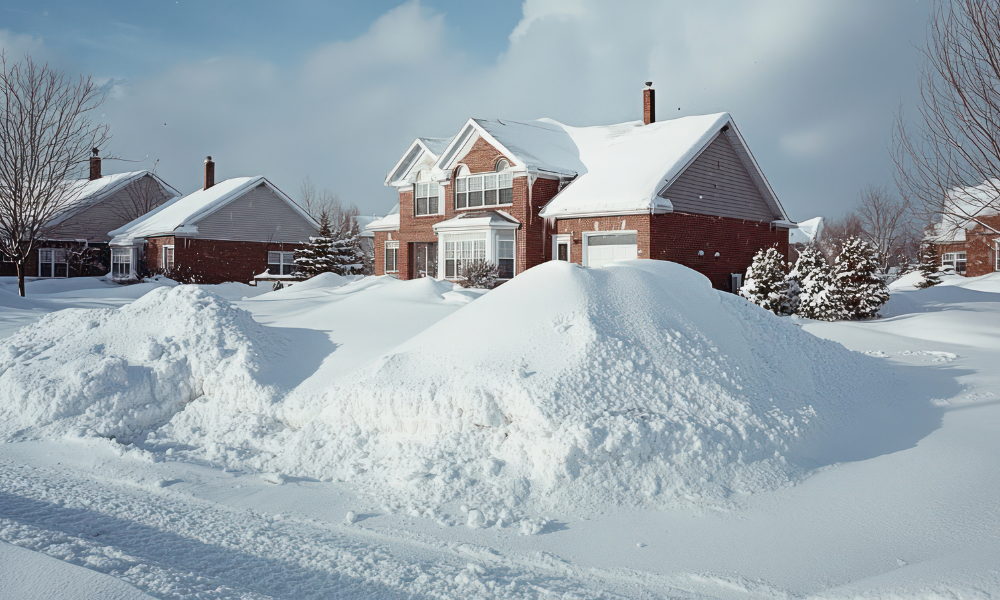Flat prices, tax changes, and extreme weather challenge Canada's ski regions

Canada’s ski home market has remained steady despite rising interest rates and new tax policies. While many buyers are holding back due to higher borrowing costs, Royal LePage predicted a market revival as early as 2025, driven by improved lending conditions and renewed buyer confidence.
The past year has been marked by a near standstill in the ski home market. From January to September 2024, the median price of a single-family detached home in popular ski destinations dropped by just 0.4% to $948,800. The market mirrored trends in urban housing, where rising borrowing costs curbed buyer activity and extended selling times.
"Much like the mainstream urban housing market, sales activity in Canada's recreational regions has been treading water over the past year,” said Royal LePage CEO Phil Soper. “Yet, recreational home prices have remained stable as low supply balanced sluggish buyer demand."
However, recreational property buyers are not immune to broader economic pressures. Many already carry mortgages on their primary residences, leaving them cash-strapped and hesitant to invest in a vacation home. The fallout has forced some owners to downsize or sell, especially as short-term rental opportunities face tighter regulations.
"In a time when short-term rentals are facing increasingly stringent regulatory measures, leasing your winter property to offset expenses is not the straightforward solution it once was," Soper said.
However, with rates expected to fall, Soper “foresee[s] that buyers who have been waiting on the sidelines will start to get serious again as soon as market competition heats up."
Capital gains tax hike
Adding to the market’s challenges is the federal government’s revised capital gains tax policy. Effective June, the inclusion rate on capital gains above $250,000 rose from 50% to 66.7%.
The policy, which applies to non-primary residences, has particularly impacted recreational property owners. Over 38% of Royal LePage recreational property experts reported a surge of inquiries from clients around the time the updated capital gains tax change was announced.
"Canadians were not given much runway to react, from the time the changes to capital gains were first unveiled to when they officially came into effect,” Soper said. “The updated tax law left some sellers scrambling for a quick sale.
"The tax change will materially impact Canada's investor segment, both in the urban and recreational areas of the country. Contrary to government efforts to create much-needed housing supply for the one-third of Canadians who currently rent, revisions to the tax law discourage entrepreneurial investment in housing."
Climate challenges
Extreme weather and climate change continue to weigh on Canada’s recreational regions. Events such as wildfires, flooding, and record-breaking hailstorms have caused significant damage and displacement in communities across the country.
Read next: Canada's mortgage renewal wall: A 'headwind' but not a crisis
In mid-July, Alberta’s Jasper National Park experienced its largest wildfire in a century, destroying over 32,000 hectares of forest and 30% of local structures, including 820 housing units. Rising temperatures have also made ski resorts more dependent on snow-making technology to sustain operations.
“No one is spared from the impacts of climate change,” said Soper. “Still, Canada’s more northerly ski destinations have more reliable snow conditions than many American and European resorts, offering a competitive advantage.”
With interest rates expected to decline further and lending conditions improving, the Royal LePage report anticipates a revival in ski home sales by 2025.
“The resilience of the winter recreational market underlines its long-term appeal,” Soper said.
Make sure to get all the latest news to your inbox on Canada’s mortgage and housing markets by signing up for our free daily newsletter here.



